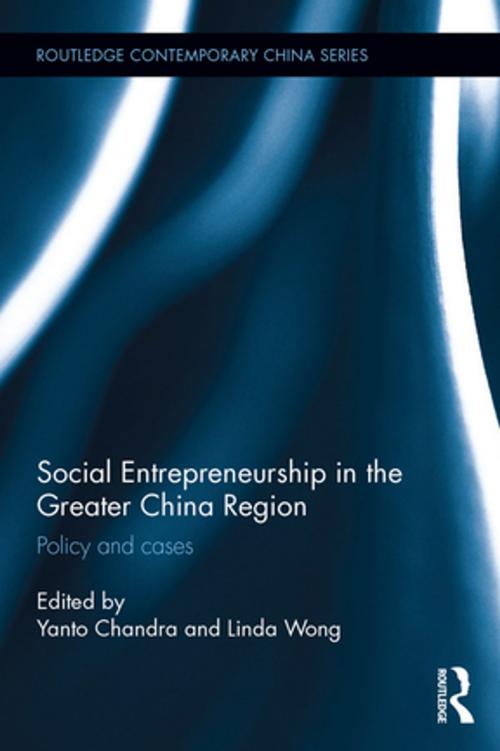Social Entrepreneurship in the Greater China Region
Policy and Cases
Business & Finance, Career Planning & Job Hunting, Entrepreneurship, Entrepreneurship & Small Business, Nonfiction, Social & Cultural Studies, Social Science| Author: | ISBN: | 9781317365983 | |
| Publisher: | Taylor and Francis | Publication: | March 31, 2016 |
| Imprint: | Routledge | Language: | English |
| Author: | |
| ISBN: | 9781317365983 |
| Publisher: | Taylor and Francis |
| Publication: | March 31, 2016 |
| Imprint: | Routledge |
| Language: | English |
This book offers the first exploration into the development of social enterprises in the Greater China region, consisting of Hong Kong, Macau, Taiwan and Mainland China. By drawing on the research and experience of over a dozen scholars and practitioners from across the area, it offers a picture of how a strong State can play an important role as a catalyst in developing the social entrepreneurship sector, particularly by legitimizing it. It delves into the role and impact of institutions and policy on the development of social enterprises, and explains how micro and macro factors might interact in influencing social entrepreneurship. Structured in two parts – policy and cases – it reveals the historical development of the Social enterprises sector in the Chinese context and then illustrates this using cases studies. Providing an alternative view of social entrepreneurship by highlighting the importance of context in this new sector, the book questions whether or not social entrepreneurship is preferable to more conventional models of development.
Sparking new interest and offering fresh insight into social entrepreneurship in the Greater China region, this book will be useful to students and scholars of Chinese Studies, Business Studies and Sociology.
This book offers the first exploration into the development of social enterprises in the Greater China region, consisting of Hong Kong, Macau, Taiwan and Mainland China. By drawing on the research and experience of over a dozen scholars and practitioners from across the area, it offers a picture of how a strong State can play an important role as a catalyst in developing the social entrepreneurship sector, particularly by legitimizing it. It delves into the role and impact of institutions and policy on the development of social enterprises, and explains how micro and macro factors might interact in influencing social entrepreneurship. Structured in two parts – policy and cases – it reveals the historical development of the Social enterprises sector in the Chinese context and then illustrates this using cases studies. Providing an alternative view of social entrepreneurship by highlighting the importance of context in this new sector, the book questions whether or not social entrepreneurship is preferable to more conventional models of development.
Sparking new interest and offering fresh insight into social entrepreneurship in the Greater China region, this book will be useful to students and scholars of Chinese Studies, Business Studies and Sociology.















